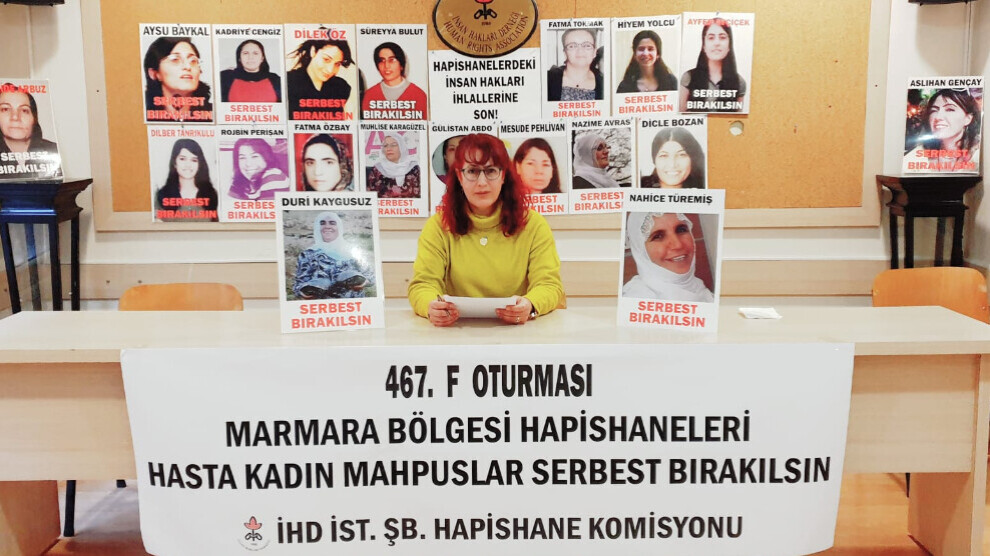IHD says 61 women prisoners suffer from serious health problems
The IHD Prison Commission announced that 61 ill women prisoners suffer from serious health problems and added that ‘they should be released immediately.’
The IHD Prison Commission announced that 61 ill women prisoners suffer from serious health problems and added that ‘they should be released immediately.’

The Human Rights Association (HD) Istanbul Branch Prison Commission held a press conference on social media on the 467th week of the "F session" they organize every week to draw attention to the situation of ill prisoners.
IHD commissioner Meral Nergis Şahin emphasized that gender discrimination is heavily manifested in prisons and that the violations of rights against women and LGBTI + are increasing.
Referring to the problems experienced by women in prisons Şahin said that "according to the IHD, in Turkey prisons there are at present at least 61 seriously ill women prisoners.”
This week, the IHD focused on the situation of 5 women prisoners in the Marmara Region.
Şahin said: "Fatma Tokmak is being held in Bakırköy Women's Closed Prison. She has two heart valves replaced by an artificial valve. She has stomach and blood pressure problems. She also suffers from varicose veins. Süreyya Bulut is also being held in Bakırköy Women's Closed Prison. She has a piece of shrapnel on her head which needs to be operated. However, she can’t undergo surgery as it is very risky. She suffers from very heavy pain.
She lost her sight on one eye and also suffered from Wernicke Korsakoff.”
Şahin added: “Gülistan Abdo is being held in Gebze Women's Closed Prison. She has a cyst on her back. She has a prosthesis on her left leg, knee down. Hazine Alçı is also being held in Gebze Women's Closed Prison. As a result of a gunshot injury, platinum was inserted to her right leg from the knee to the hip, and she has been living with an internal prosthesis since 2000.
Mesude Pehlivan too is being held in Gebze Women's Closed Prison. She is trying to survive with stomach cancer, lymph tuberculosis and lung cancer diseases."
Saluting all prisoners on 8 March Şahin said: "Ill women prisoners, especially those with severe and chronic diseases, those with disability, bedridden and with children should be released immediately."